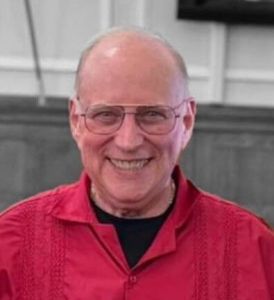BURTON FLETCHER: I want people to like me
Published 7:41 am Monday, December 2, 2024
 The desire to be liked is an intrinsic aspect of the human experience. It stems from our nature as social beings who thrive on connections, mutual understanding, and companionship.
The desire to be liked is an intrinsic aspect of the human experience. It stems from our nature as social beings who thrive on connections, mutual understanding, and companionship.
The isolation experienced by those in prison serves as a stark reminder of our need for social engagement and interaction.
As someone who identifies as an ambivert, I switch between solitude and social vibrancy, finding comfort in both realms. However, my journey, mainly through my work with the Burton Fletcher Foundation for Animals, has taught me invaluable lessons about relationships and self-worth, eventually leading to personal growth and increased social confidence.
Trending
For years, social anxiety loomed like a dark cloud over my interactions. The mere thought of entering a crowded classroom or courtroom would lead to cold sweats and an overwhelming dread.
Reflecting on Dale Carnegie’s timeless wisdom, particularly from his seminal work, “How to Win Friends and Influence People,” I realized that the path to overcoming my fears lay in forming genuine connections with others. Here’s how Carnegie’s six principles became the foundation for my transformation.
1. Become Genuinely Interested in Other People.
The first step in creating lasting friendships is showing authentic interest in those around you. I shifted from worrying about how others perceived me to exploring their stories, passions, and dreams. This change lessened my self-consciousness and fostered deeper, more meaningful relationships.
2. Smile.
A simple smile holds incredible power. It can bridge gaps, dissolve fears, and create a welcoming atmosphere. Smiling made me feel more approachable and encouraged others to relax and engage with me. Happiness can be contagious, and I learned to harness that by sharing my genuine joy with those I encountered.
Trending
3. Remember That a Person’s Name is the Sweetest Sound.
Taking the time to remember and use someone’s name can profoundly impact them. It conveys respect and appreciation, making the other person feel valued. With my newfound confidence, I made a point to remember names and address people directly — this small act improved my connections significantly.
4. Be a Good Listener.
Listening is an art that requires practice and patience. My social experiences taught me that people love to talk about themselves. By giving my full attention, I discovered more about others and, in turn, felt more engaged. Each conversation became an opportunity to connect, and that fear of judgment began to fade.
5. Talk in Terms of the Other Person’s Interests.
Finding common ground is essential in any discussion. I learned to steer conversations toward topics that excited others. By aligning with their interests, I made them feel valued and became a more compelling and relatable conversationalist.
6. Make the Other Person Feel Important — Sincerely.
Everyone wants to feel special. I made a conscious effort to recognize and celebrate the qualities and achievements of others. This commitment to sincerity and appreciation deepened my relationships and reinforced my self-worth.
As I learned and practiced these principles, I noticed a gradual shift in my self-perception. The realization that I was just as good as everyone else, and sometimes even better, gradually became my reality.
This newfound confidence reshaped how I navigated social interactions, transforming anxiety into ease and enjoyment.
Today, I can attend events related to my work with the Burton Fletcher Foundation for Animals without the crippling anxiety of the past. I walk into rooms knowing genuine connections can be forged through shared interests and mutual respect.
The transformation from a socially anxious individual to actively seeking to engage with and uplift others is a testament to persistence, self-improvement, and the guiding wisdom of Carnegie’s teachings.
The journey of wanting to be liked is universal, yet how we navigate that desire can be uniquely personal. Each effort made to connect enriches our lives and the lives of those we touch.
Dale Carnegie’s timeless advice is a potent reminder that through empathy, understanding, and kindness, we can cultivate relationships that fulfill our social needs and empower us to become the best versions of ourselves.
In conclusion, I stand as a testament to the idea that a sincere desire to connect, paired with actionable steps toward improving our interpersonal skills, can lead to meaningful relationships.
Understanding, listening, and uplifting one another, we can create a world where everyone feels appreciated and valued. After all, this is the essence of humanity — a simple but profound need to be liked and to connect.
Burton Fletcher, JD, MBA, is a Valdosta citizen and active attorney with the new law firm, Burton Fletcher for Injury Law. Fletcher is well known for his community service through the Burton Fletcher Foundation for Animals and other civic organizations. He can be reached at Burton@BurtonFletcherFoundation.org.





